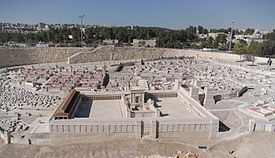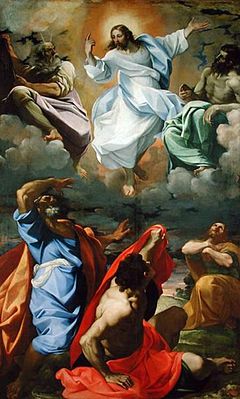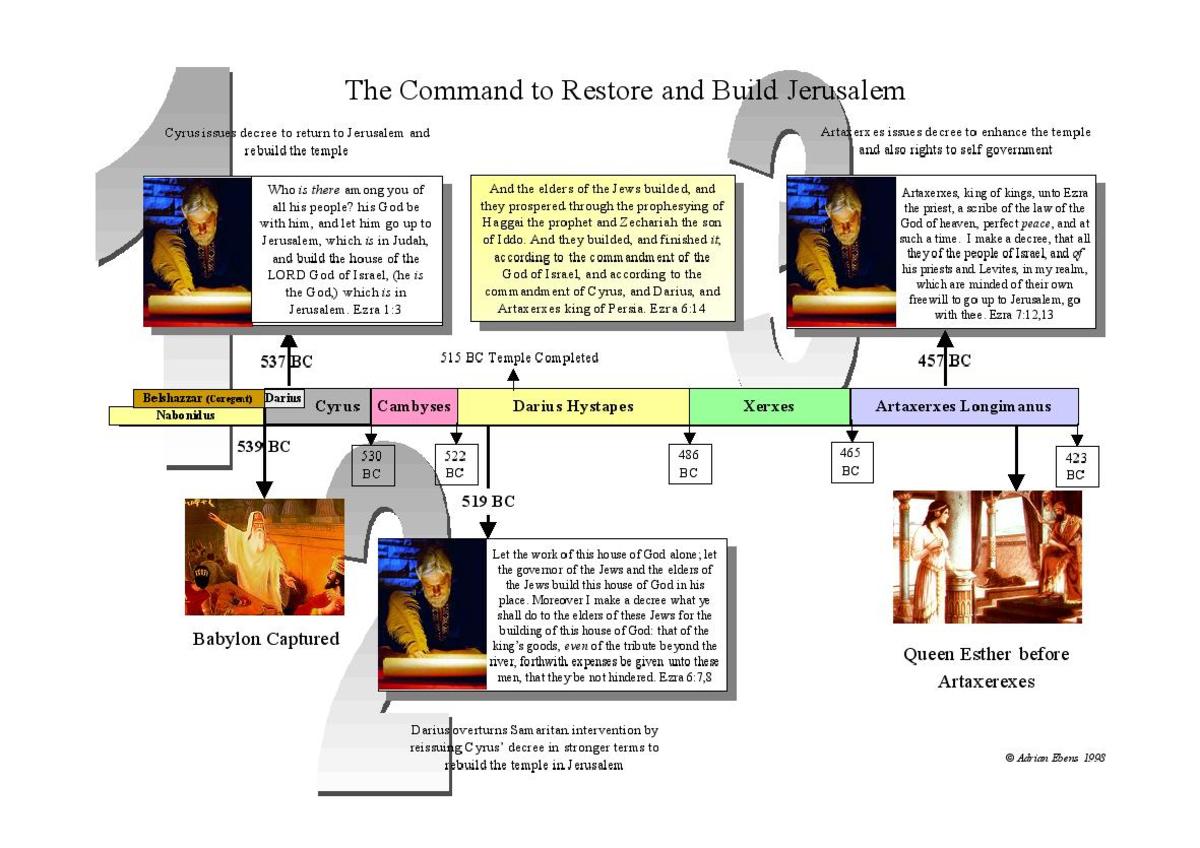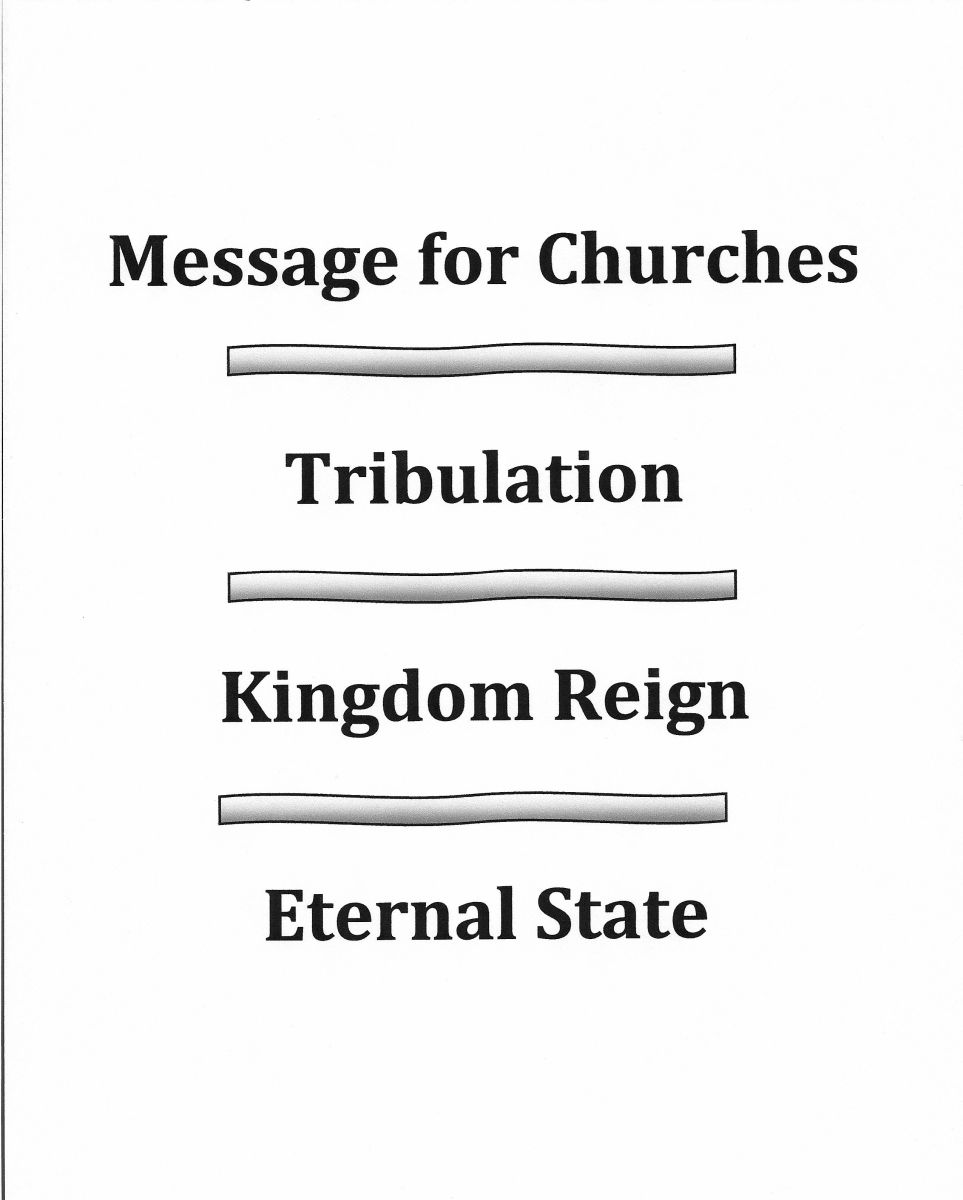Bible: What Does Luke 21 Teach Us About the Destruction of the Temple, and The Great Tribulation?
The Temple in Jerusalem

The Temple
Mark’s account of “The Widow’s Two Mites” presents a fuller, more detailed picture of this scene than does Luke’s (vv. 1-4; cf. Mk. 12:41-44).
The latter’s record of Jesus’ eschatological discourse about the destruction of the temple (vv. 5-6), the “signs of the times” (vv. 7-19), the destruction of Jerusalem (vv. 20-24), the parousia of the Son of Man (vv. 25-28), and “The Parable of the Fig Tree” (vv. 29-33) includes much of what Matthew pens.
However, its distinctive diction makes it a worthwhile project to undertake and not simply to skim.
While Mark notes that one disciple exults over the stones and buildings in the temple complex (13:1), Luke also mentions that worshipers adorn or decorate the temple itself with “donations” (v. 5).
[These donations, according to Langenscheidt’s Greek Dictionary, include “consecrated gifts, monuments, and additions” (28).]
Jesus’ interesting response in Luke does not begin with a question (as do the other Synoptics), but it still predicts the temple’s complete overturning and dismemberment (v. 6).
His answer to the disciples’ queries regarding “these things” (v. 7a)—that is, the destruction of the temple and its accompanying sign—appears exclusively in this gospel (cf. vv. 20-24).
End-Time Events


The Signs of the End of the Age
Before answering those questions, however, Jesus launches out into a lengthy discourse that mentions nothing about “these things.”
He warns His disciples not to follow false messiahs (v. 8) and not to fear the inevitable “wars and commotions” occurring prior to “the end” (v. 9).
[When Christ mentions “the end,” it seems as though He’s answering one of Matthew’s recorded questions, not one of Luke’s.]
Jesus’ further comments address the conditions confronting the Jewish remnant of the end-time, predicting that these saints will witness international conflicts (v. 10) and worldwide natural disasters and other phenomena (v. 11) after being persecuted for the faith (v. 12).
[The first century did not experience these worldwide political and environmental disruptions, so Jesus is referring specifically to conditions prior to “the end” in verses 10-11.]
The Lord’s instruction about how and what the apostles should testify appears in the other Synoptics, but especially in Mark (vv. 13-19; cf. Mk. 13:9-13).
Again, the specific words in these two works differ, making it a difficult reconciliation.
Mark mentions the worldwide proclamation of the gospel—something Luke does not.
What words did Jesus actually speak?
Luke-Matthew Comparison
Luke
| Matthew
|
|---|---|
“But it will turn out for you as an occasion for testimony. Therefore settle it in your hearts not to meditate beforehand on what you will answer; for I will give you a mouth and wisdom which all your adversaries will not be able to contradict or resist. You will be betrayed even by parents and brothers, relatives and friends; and they will put some of you to death. And you will be hated by all for My name’s sake. But not a hair of your head shall be lost. By your patience possess your souls.”
| “But watch out for yourselves, for they will deliver you up to councils, and you will be beaten in the synagogues. You will be brought before rulers and kings for My sake, for a testimony to them. And the gospel must first be preached to all the nations. But when they arrest you and deliver you up, do not worry beforehand, or premeditate what you will speak. But whatever is given you in that hour, speak that: for it is not you who speak, but the Holy Spirit. Now brother will betray brother to death, and a father his child; and children will rise up against parents and cause them to be put to death. And you will be hated by all for My name’s sake. But he who endures to the end shall be saved.”
|
Destruction of Jerusalem Prophesied
view quiz statisticsJerusalem Destroyed
Now Jesus prophesies an event certain to overtake Jerusalem in her not-too-distant future; namely, the Roman general Titus’ conquest and destruction of the city in A.D. 70 (vv. 20-24).
His opening statement hearkens back to the disciples’ original question, “And what sign will there be when ‘these things’ are about to take place?” (cf. v. 7b).
Their seeing desolating armies surround their holy city appears to be that sign for them to leave Judah (vv. 20-21).
[The other two Synoptics indicate that “the abomination of desolation standing in the holy place (Matthew)/where it ought not (Mark)” serves as the signal for the inhabitants to flee Judah (Cf. Matt. 24:15-16; Mark 13:14-15).
These texts, of course, point to the time of the Great Tribulation upon the whole Earth, not just to the first-century tragedy upon the Jews; a different time calls for a different sign.]
This invasion fulfills the prophecy of “the days of vengeance”—a term only Luke employs to refer to the time after the death of Christ when “the people of the prince who is to come [the Romans] shall destroy the city and the sanctuary” (Dan. 9:26; underscoring and bracketed material mine).
Jesus laments the suffering of the innocent in the land of Israel, as wrath falls upon them by the hands of their enemies (v. 23).
The Jews’ widespread slaughter will give way to worldwide captivity; meanwhile, Gentiles will continue their iron-fisted rule over the city (v. 24; cf. Zech. 14:1-2).
[The separate destructions of Jerusalem (A.D. 70 and the Great Tribulation) are sometimes difficult to distinguish.
Perhaps this prophecy has a near and far fulfillment.]
[Ryrie interprets the “times of the Gentiles” as a period extending from Nebuchadnezzar (587 B.C.) to the end of the Great Tribulation (cf. Rev. 11:2)].
The Second Coming of Christ to the Earth

Luke’s record of astronomical phenomena appears somewhat different than Matthew’s description of conditions above.
Whereas Matthew emphasizes the relative darkness that will descend upon the Earth (24:29), Luke focuses on “signs” being in heavenly bodies (v. 25a).
[If the interpreter takes the astronomical terms as the literal sun, moon, and stars, then it is impossible to know what Jesus meant by “signs” occurring in them, unless He is referring to Matthew’s darkness.]
These “signs” contribute to the worldwide tribulation; Jesus uses the words “distress,” “perplexity,” and “fear” to describe mankind’s mental and emotional status during this time as they await the next plague to assault the Earth (vv. 25-26).
[What does the clause “the powers of the heavens will be shaken” mean?
What are these “powers”?
The sun, moon, and stars, or are they Satanic forces?
How might God shake these entities?
He must “tighten” His physical or spiritual “grip” on them, so to speak, to cause “things”—Revelation’s natural disasters, plagues, etc. —to pummel the Earth.]
At the height of the chaos, the remnant and other survivors from all mankind (“they”) will then personally witness the glorious parousia of the Son of Man (v. 27).
[Presumably, all of “these things” must occur together; when they do, the believers should understand them as necessary events leading up to the consummation of their redemption by Christ (v. 28).]
The Fig Tree

Petra

The Parable of the Fig Tree
To illustrate further that certain signs must take place before His Second Coming to Earth, Jesus offers “The Parable of the Fig Tree” (vv. 29-33).
[Interestingly, the Lord also refers to “all the trees,” not just to the fig tree.
Interpreters understand the fig tree to symbolize Israel, but here it appears to mean “fig tree.”]
He compares the budding of trees in the spring (v. 30a) to the remnant witnessing the astounding events of the Tribulation (v. 31a), and the summer (v. 30b) to the appearance of the kingdom of God (v. 31b).
Christ stakes the divine authority of His eternal words (“Assuredly, I say to you”) upon the certainty that “all things” will take place before “this generation” passes away (vv. 32-33; cf. Mt. 24:34-35).
The Lord issues a warning to His audience not to allow anxiety about life to turn them into depressed drunkards (v. 34a).
A future generation (or even the present-day one) will experience “these things.”
Jesus wants His people to face those difficult days with prayer, not be unexpectedly snared by them, as will “all those who dwell on the face of the whole earth” (vv. 34b-36a; cf. Rev. 3:10).
[In what sense does Jesus mean “escape” (v. 36b)?
This commentator contends that Christ will “rapture” His church before the seventieth week of Daniel; therefore, she will not experience that period of trial at all.
According to the book of Revelation, however, the Jewish remnant will have to weather the tribulation, yet it will also escape to Petra (or some protected region) away from Satan’s persecution (12:14ff).
These elect individuals Jesus will count worthy to welcome (“stand before”) Him (“the Son of Man”) when He comes to Earth to set up His kingdom (v. 36c).]
Luke appends an observation about how Jesus spent many of these latter days: teaching the people every day in the temple and spending nights on Mount Olivet (vv. 37-38).
[Why was no one willing to lodge Him?]
© 2013 glynch1








